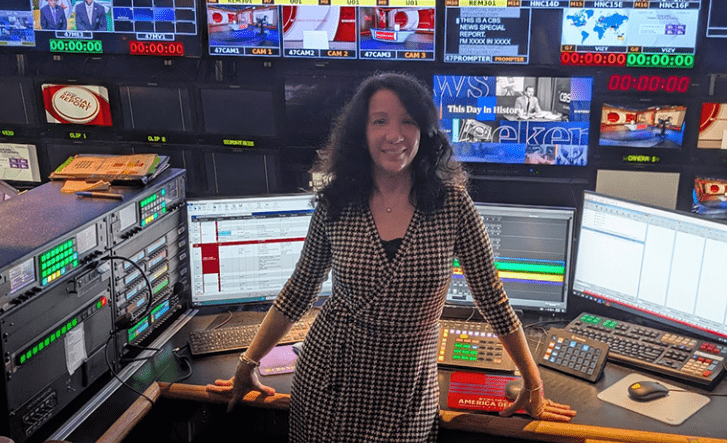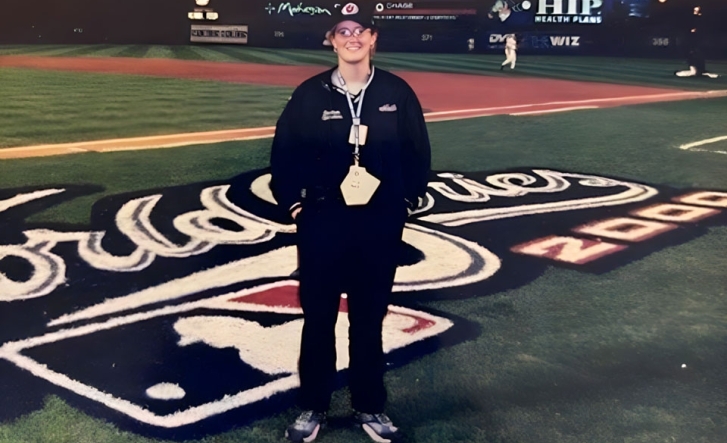Library Association Leader: Alumnus Elected to American Library Association Presidency
For Raymond Pun, Ed.D. ’07C, ’13G—a double alumnus of St. John’s University and first-generation college graduate—April 8, 2024, will always be memorable. That was when he learned he was elected the next President of the American Library Association (ALA) and will lead the organization during its 150th anniversary year.

“I look forward to connecting with so many folks who are interested in being involved in ALA, whether that’s serving on a committee or working on a project, and being a mentor and coaching other people and fostering those connections,” he said.
Established in 1876, the ALA is the world’s oldest and largest library association. It advocates for librarians and library science internationally with eight membership divisions dealing with topics such as academic, school, or public libraries; technical or reference services; and library administration. Headquartered in Chicago, IL, it has a membership of almost 50,000 and an annual budget of $55 million.
“I can’t believe this happened,” Dr. Pun, 38, said.
Meet Raymond Pun., Ed.D., the Newly Elected President
Dr. Pun, an academic and research librarian at the Alder Graduate School of Education in Redwood City, CA, holds several distinctions in library sciences and is a member of several library-related nonprofits, including the Chinese American Librarian Association and the Asian Pacific American Librarians Association, where he served as President as well.
His ALA presidency begins in July 2025 and continues until June 2026, coinciding with the organization’s 150th anniversary. Dr. Pun’s primary goal is to enhance the professional relationships he has established and create a truer sense of belonging for every organization member.
From Fresno, California, to Shanghai, China, Dr. Pun’s work as a university librarian has exposed him to various cultures. He intends to promote multicultural awareness in his new position through collaborations with organizations such as the Peruvian Library Association and the Library Association of Singapore.
“I look forward to connecting with so many folks who are interested in being involved in ALA, whether that’s serving on a committee or working on a project, and being a mentor and coaching other people and fostering those connections,” he said.
How St. John’s University Shaped Dr. Raymond Pun’s Career in Library Science
In revisiting the 17-year journey that led him to his new role, Dr. Pun reflected on the influence of education in his life, his research passion projects, and how it all began with an internship done during his time at St. John’s.
Dr. Pun grew up in Flushing, NY, in a family of immigrants. His first tour of St. John’s came while a sixth-grade student at Public School 120 in Queens. Years later, when choosing a college, he opted for St. John’s, where he earned a Bachelor of Arts degree in History and a Master of Arts degree in East Asian Studies.
At St. John’s, he discovered valuable mentors in his professors, including Nerina Rustomji, Ph.D., Associate Professor of History and Chair, Department of History at St. John’s College of Liberal Arts and Sciences.
“As a student, Ray understood the power of education to transform,” Dr. Rustomji said. “He was, and continues to be, extraordinary at seeing and forging connections, whether integrating ideas or bringing people together for research. Ray is an example of how studying the humanities opens a world of possibility.”
Dr. Rustomji said her department is proud of Dr. Pun’s election and many other library science successes. “It is rewarding to see Ray provide leadership on a national level, especially when it comes to preserving, studying, and appreciating various historical narratives,” she said.
Upon graduating from St. John’s, Dr. Pun earned a Master of Library Science degree from CUNY Queens College and a Doctor of Educational Leadership from California State University, Fresno. But it was during his years at St. John’s that he first explored the idea of building a career in the library field. His undergraduate program offered an option of an internship for credit; he decided on The New York Public Library (NYPL) where a friend was a student worker.
During his internship at NYPL, he focused on the preservation of oral records of the Jewish experience during the Holocaust, a research theme Dr. Pun still believes is essential. There, he realized the immense value of archiving and collecting historical records for research.
Dr. Raymond Pun’s Path to ALA Presidency
Dr. Pun became involved with ALA as a volunteer in 2010; he has been a member since. The road to his election as President began in November 2023, when the Nomination Committee, consisting of peers within ALA, announced him as one of two finalists for the position.
From January to April 2024, he was in hectic “campaign mode,” attending meetings and visiting state library chapters as far away as Louisiana and Washington. Five months after his nomination, his election was announced.
“Dr. Pun exemplifies the best of our profession in his commitment to shared values of intellectual freedom, equal access to information for all, and the importance of libraries in all of our communities,” current President Emily Drabinski said. “I am delighted he will take office and I look forward to leading alongside him.”
Dr. Pun finds inspiration in the path of many prior ALA presidents, including Carla D. Hayden, Ph.D., President from 2003 to 2004 and current Librarian of the United States Library of Congress. He never imagined his work with the ALA would lead to the organization’s presidency.
“I was just thinking of my work as a frontline library worker, a librarian, engaging with researchers and students,” he said.
The official motto of the association, “The best reading, for the largest number, at the least cost,” echoes the Vincentian mission of Dr. Pun’s alma mater. Dr. Pun recalled his immersion in service-learning opportunities at St. John’s and noted how libraries promote similar social values. As a reliable source of free books, speedy internet, databases for research, and various cultural and educational experiences, libraries nurture community engagement and offer unique tools for self-improvement, he said.
Among other recent developments, library users can now access niche content such as graphic novels and fanzines, and video game content. There has been a trend in academic libraries to turn traditional reading areas into collaborative spaces, including virtual reality, artificial intelligence, or data studios.
Dr. Pun said students should continue cultivating the professional and research relationships they established in college, as he did. “Those people will see you in different parts of your life, and it’s important to ground yourself,” he said.



